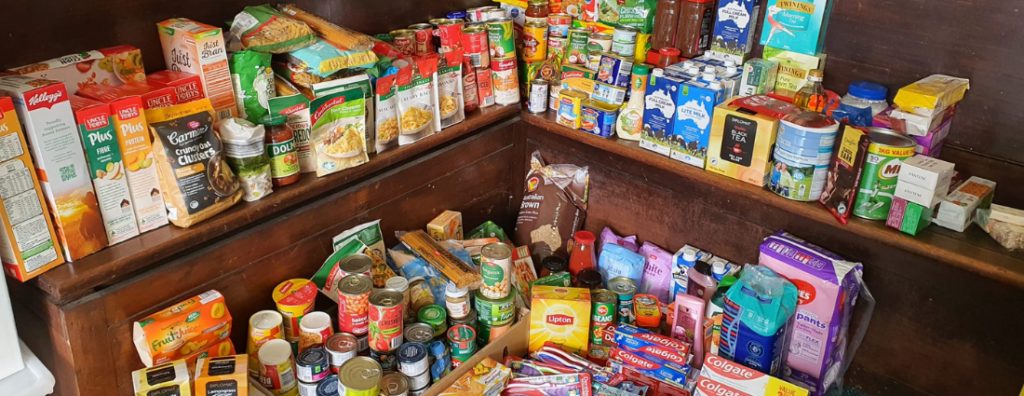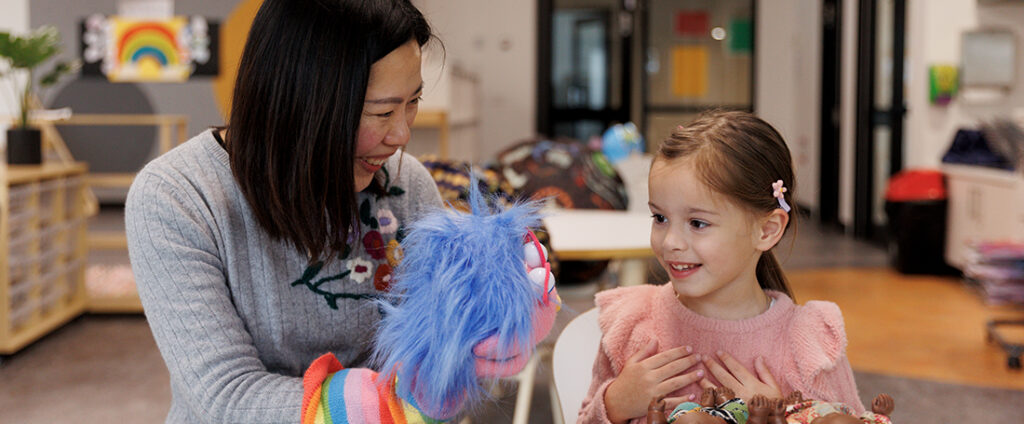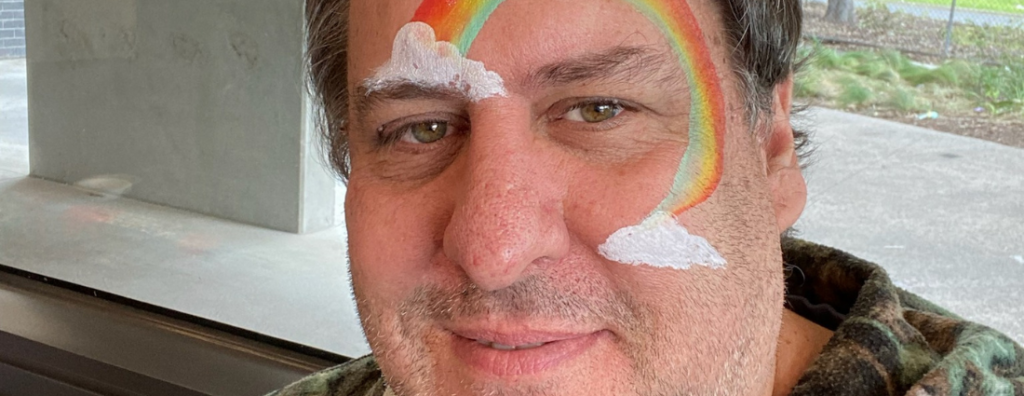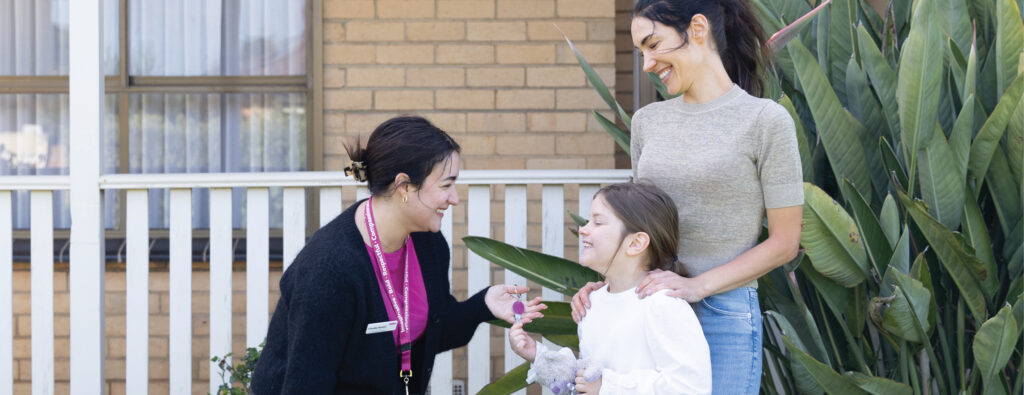Children in foster care rarely have this early parenting experience.
Let us reflect on Mathew’s life. Even before he was born he was hearing the violent arguments between his parents. His mum could barely soothe herself, as she was alert for the next beating. She had no space to keep her developing baby in mind. Her high stress levels led to increased levels of stress hormones, which surrounded Matthew as a foetus. After he was born the arguments continued. Sometimes Matthew was held between his fighting parents. At least once he was snatched from his mum’s arms and flung onto the bed by his dad. As a baby Matthew instinctively signalled his distress to his parents by crying and screaming. But when he did, at best he was met with no response from his parents. Worse they yelled at him, told him to shut up and even on occasion hit him. Matthew learned not to signal when he needed soothing, but with no capacity to soothe himself all he could do was sleep through his distress.
One night, police were called by neighbours to Matthew’s home. They found Matthew in physical danger while his parents fought. Matthew was removed in the middle of the night to a foster placement. He was found to be a ‘good’ baby, no trouble to care for, spending large amounts of time asleep. When he ‘woke up’ in his toddler years, he was highly active, prone to tempers and unusually self-reliant, with both his carers and his birth parents, who he saw every couple of months. He rarely turned to his carers for comfort, even when he experienced pain or distressing experiences.
Like Luka, Matthew experienced complex trauma which was chronic and prolonged and began before his birth. However, unlike Luka, Matthew did not have parents he could trust to love and care for him. He had no support that he could rely on during the worst part of his experience. Matthew had to learn to become self-reliant, an ability he clung to throughout his childhood. The trauma that Mathew experienced occurred within his family and this has had a major impact on him.
Matthew’s brain is wired for danger and a lack of trust in others. He has learnt how to behave this way with his mum and dad and this impacts upon his behaviour with his foster carers and at school. He finds it difficult to calm down once upset and he struggles to self-reflect and make sense of his experiences and relationships with others. He finds it hard to trust others.
Matthew also experiences emotions such as sadness, anger or worry more intensely when he thinks his carers are unavailable or, worse, if they argue or became stressed. For Matthew these are a reminder of the more intense arguments and stress of his mum and dad. His carer telling him “no” or being displeased with him can cause sadness, anger or worry, which can lead to the triggering of a memory of his early childhood trauma experience. This reinforces Matthew’s need to be self-reliant. It moves Matthew further away from being able to seek comfort from his carers who he sees as both the source of the distress and unavailable as comforters.
Matthew is a difficult child to parent. How he learnt to cope with neglectful and frightening parenting early in his life and to cope with the subsequent separation and loss of these parents and his emergency foster carers affects his ability to make good attachments. His need to stay in control means that he is not open to a reciprocal, loving relationship with his carers. He works hard to be self-reliant; to hide his need for comfort. But when his stress reduces he continues to demonstrate coercive, attention-needing behaviours, demanding that his carers remain attentive to him.
Belinda and Mike are Matthew’s long-term carers. They have an older birth child, Daniel, whom they have parented successfully. When parenting Daniel, his parents felt safe and competent. They enjoy being with him, but can also recover easily from times of conflict when Daniel is more oppositional. Belinda and Mike always make sure to repair their relationship with Daniel following such times, and so he experiences unconditional love. Belinda and Mike feel rewarded in the parenting task, want to approach and interact with their child and are able to tune into his needs and make sense of his behaviours and their responses to them. They are able to provide Daniel with warmth, openness and empathy as well as providing boundaries for his behaviour and sufficient structure to help him stay safe.
With Matthew, all of these parenting abilities are challenged. Whilst they offer the same unconditional love as for Daniel, Matthew does not trust this. Structure and boundaries can trigger his fears of being hurt or abandoned again and he responds with rage and terror. It is hard to enjoy being with Matthew as Belinda and Mike find themselves waiting for the next rage-filled episode. They try to attune to Matthew’s needs, but his behaviour leaves them feeling confused and helpless. They try to give love and warmth, but it never feels like it is reciprocated. They offer nurture but Matthew rejects this in favour of his feelings of control.
They feel no pleasure in this relationship and find it hard to tune into his needs or to make sense of his behaviours. They experience a painful sense of failure as parents. They feel like withdrawing. They quickly become defensive as they shout, nag and plead with him.
Fortunately Belinda and Mike can think, plan and self-monitor even at their most stressed with Matthew. They are also able to seek and use the support of friends, family and professionals. This self-awareness and ability to draw upon support allows them to stick with Matthew, rather than rejecting him.
Belinda and Mike found some good professional support and this, combined with good friends and some supportive family members, helped them withstand the worst times. Belinda had the hardest time as Matthew feared her love the most and rejected her attempts to connect with him. It was particularly tough in his early years when only she witnessed this side of him whilst to everyone else he was charm itself. At eight years of age, Matthew struggled to make sense of his experience of being in care. He figured “I must be a bad kid!” and dreamed of parents who would not have rejected him. The increased stress that this brought meant his anger and rage became visible to everyone. Even the smallest of boundaries and the kindest of ‘no’s’ led to a fear that he would be rejected and would lose this family too. Belinda and Mike worked with their professional supporters to understand this and to remain connected with Matthew even when he was fighting them. Most difficult for them was balancing Matthew’s enormous needs with those of their older son, so that Daniel also got what he needed from his parents. With support and therapeutic help they managed and they had some calm years.
There were some good family times as Matthew began to believe in what was on offer. They could not be as spontaneous as they would have liked, change and transition would always be difficult, but there was laughter and fun. It was also good to see Matthew’s developing friendship with Daniel, and to watch the two of them enjoying finding their feet in the wider world.
It was seat belt time as Matthew hit his teens. All the old doubts and fears seemed to resurface as Matthew again tried to figure out who he was and where he belonged. For a while the old Matthew was back with his need to control, reject and hate within the family. Luckily their professional support was on hand ready to mobilise and together they all figured out what was going on. Belinda and Mike revisited old strategies. At night they watched him sleeping and remembered the love they would always have for him. A therapist worked with all of them so that Matthew could experience his carer’s acceptance and understanding of his biggest rages and worst fears.
Matthew left home when he was ready, which was in his mid-20s. He came back often, sharing with them his success as an engineer. As he approached 30 he found a steady partnership with Ruth. The proudest moment of Belinda and Mike’s life was watching Matthew hold his small infant son. As they watched the two gaze at each other they knew that despite the ups and downs, they had got there and that Mathew no longer had to carry the legacy of his early days.
Adapted from Matthew’s Story in Golding, Kim S. (2013) “Why are you afraid of being parented?” in Howe, David (ed) & Alper, Joanne (ed) Assessing Adoptive and Foster Parents, Jessica Kingsley, pp. 19-36. Reproduced by permission of Jessica Kingsley Publishers.






